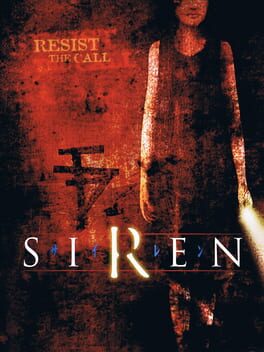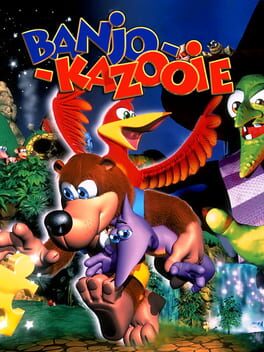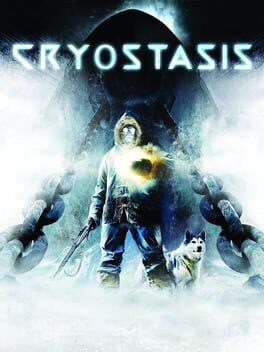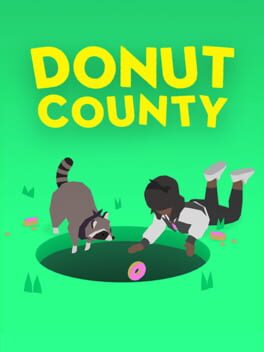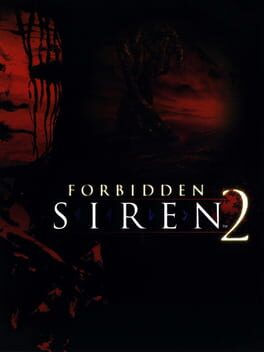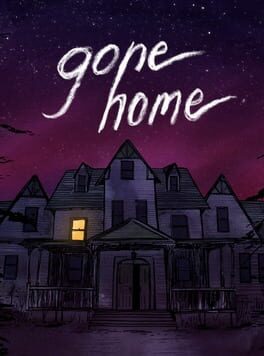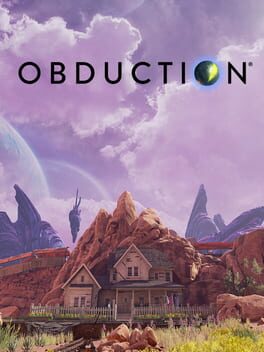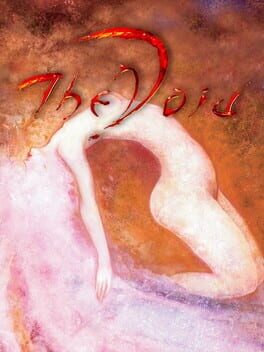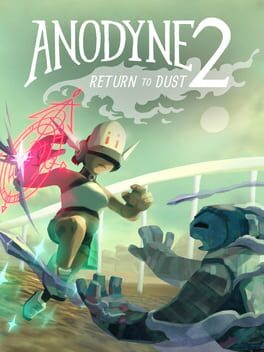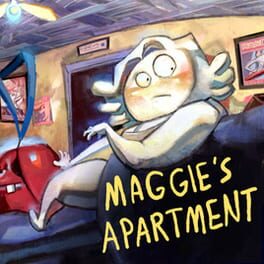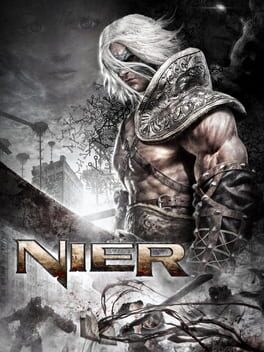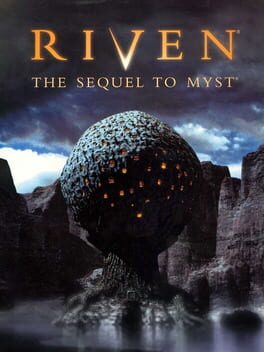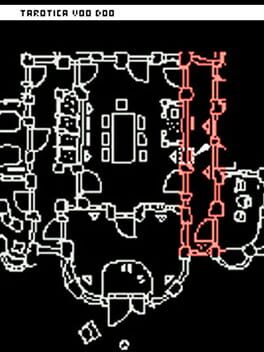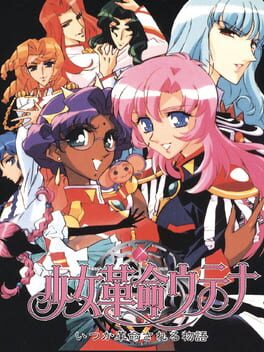ludzu
2003
if silent hill 2 chose to take the path of character study through environment & enemy design that the original silent hill created potential for, then siren chose to build upon sh1's fascination with the occult and the opaque culture and backstory behind the town. for a long time i felt like the cult stuff in sh1 makes it inferior to its sequel, as if it was nerdy lore that got in the way of directly tackling how characters' motivations are projected externally. i don't feel this way as strongly now, but i do think siren is the better exploration of "cult stuff", things that writers toyama and sato are clearly into, than how it was explored in the previous project they worked on.
this is partly due to siren being more formally experimental and more challenging to the player, in more ways than one. you've heard plenty about siren's cryptic gameplay, making it impossible without outside help, and toyama has stated that this was intentional. the aim was that there would be discussions about the game's story content AND figuring out how to progress, influenced by japanese arcades having notebooks in which players wrote hints and secrets for helping others through infamously difficult games, like tower of druaga. we can't engage in that kind of at-the-moment discussion at this point of course, but looking up walkthroughs or otherwise asking others online for help in how to complete, or even just unlock, the second objectives fulfills a similar purpose: engaging with internet as part of the experience of the game.
understanding that is key, as siren both frames itself as inextricable from the internet AND replicating the experience of taking in information through the internet. the game aims to disorient you in the same way the internet disorients your sense of time and space of things: the timeline-jumping plot with 10 playable characters with an excel-grid link navigator as the hub, the sterile and "objective" feeling menu ui, the archive of collectable items of which the descriptions contains the majority of story information, the fact that some of the story exists outside the game itself online in the form of extra short stories, fake forums posts, in-fiction websites that might be gone by now. all this gives the game an impression that you are lost in a labyrinth of databases as you learn more and more, colored by anthropological annotations and paranormal conspiracies--some of them actual real ones being referenced.
siren is a game with a looming sense of doom, leaving you fumbling to make sense of it, only able to come away with reasonable interpretations of things at best. it handles that slow slide into hopelessness better than any horror game i can think of, and that database-atmosphere works to make it feel like it's with your own gradual understanding of things, not just the plot beats, that this slide can be applied to. siren 2 is close to being as good, and many would reccommend it as the friendlier experience, BUT (besides its combat being worse and the plot not having as much impact) its missing what gave siren 1 its lasting impression for me, and thats its daringness to have you unable to grasp at both the full story AND its gameplay sequences on your own. whether asking someone on discord or looking into a years old gamefaq written by some ancestor, siren having you tackle that communal aspect makes it feel ahead of its time, predicting how soulsborne games would do it years before demon's first tried it.
this is partly due to siren being more formally experimental and more challenging to the player, in more ways than one. you've heard plenty about siren's cryptic gameplay, making it impossible without outside help, and toyama has stated that this was intentional. the aim was that there would be discussions about the game's story content AND figuring out how to progress, influenced by japanese arcades having notebooks in which players wrote hints and secrets for helping others through infamously difficult games, like tower of druaga. we can't engage in that kind of at-the-moment discussion at this point of course, but looking up walkthroughs or otherwise asking others online for help in how to complete, or even just unlock, the second objectives fulfills a similar purpose: engaging with internet as part of the experience of the game.
understanding that is key, as siren both frames itself as inextricable from the internet AND replicating the experience of taking in information through the internet. the game aims to disorient you in the same way the internet disorients your sense of time and space of things: the timeline-jumping plot with 10 playable characters with an excel-grid link navigator as the hub, the sterile and "objective" feeling menu ui, the archive of collectable items of which the descriptions contains the majority of story information, the fact that some of the story exists outside the game itself online in the form of extra short stories, fake forums posts, in-fiction websites that might be gone by now. all this gives the game an impression that you are lost in a labyrinth of databases as you learn more and more, colored by anthropological annotations and paranormal conspiracies--some of them actual real ones being referenced.
siren is a game with a looming sense of doom, leaving you fumbling to make sense of it, only able to come away with reasonable interpretations of things at best. it handles that slow slide into hopelessness better than any horror game i can think of, and that database-atmosphere works to make it feel like it's with your own gradual understanding of things, not just the plot beats, that this slide can be applied to. siren 2 is close to being as good, and many would reccommend it as the friendlier experience, BUT (besides its combat being worse and the plot not having as much impact) its missing what gave siren 1 its lasting impression for me, and thats its daringness to have you unable to grasp at both the full story AND its gameplay sequences on your own. whether asking someone on discord or looking into a years old gamefaq written by some ancestor, siren having you tackle that communal aspect makes it feel ahead of its time, predicting how soulsborne games would do it years before demon's first tried it.
1998
2009
a horror game narrative that can go toe to toe with rule of rose or the best of the silent hill series, in terms of thematic potency. i would kinda compare it to obra dinn in how its plot is told through vignettes of each individual crew member's final moments, out of chronological order, but done with far greater dramatic effect (the folklore-parallel with the captain and his officers) and with greater humanity communicated through its gameplay goals (reliving the final moments of others and taking various actions, both mundane and intensified, to save them from a cruel fate). a tale of loyalty, of warmth against the cold of despair, of regrets and a genuine wish to make things right; all this leading up to a final sequence that would sound incredibly ridiculous on paper, but is instead heartwrenching in its earnestness. "what else can i dp to save these people?"
absolutely blindsided by what i expected to be not much more than a competently atmospheric and clunky--not in a bad way necessarily--horror fps. cryostasis deserves far more appreciation than its been given and its a fucking travesty that it was pulled from digital storefronts. if you find some way of playing it and can run it well enough (it was very poorly optimized so even decent machines these days may not cut it), id say its very worth it.
absolutely blindsided by what i expected to be not much more than a competently atmospheric and clunky--not in a bad way necessarily--horror fps. cryostasis deserves far more appreciation than its been given and its a fucking travesty that it was pulled from digital storefronts. if you find some way of playing it and can run it well enough (it was very poorly optimized so even decent machines these days may not cut it), id say its very worth it.
2018
2006
i couldnt dislike it as much as i told myself i would, mostly because it is really fun to experience as something i thought i couldnt stand anymore: a story of constant reveals with the eventual goal of having everything explainable in the end. i was not ready for the sheer /volume/ of this 13 sentinels was bringing to the table, in its way more impressive than other plot twisty adventure games it gets compared to, like uchikoshi-written games or danganronpa. it is better at being this kind of thing than those mostly for the unique thrill of being so overwhelmed from many angles, and the way this overwhelmingness works in tandem with being a story about memory and perception is more potentially interesting to me.
but i also could not love 13 sentinels as much as i would like to because, just as i was afraid of, it chose a path of plot dumping at the cost of its character writing. many characters' motivations feel unexpounded on past their tropey origin point, and maybe you can argue theres some sincerity to exploring these tropes but i am not sold by that alone. you are bombarded with information and that means the game doesnt try hard enough to give many of its characters time to breathe beyond moving plot forward. this results in their scenarios often lacking impact as you reach their conclusions, giving me no reason to come around to characters i didnt care for (yakushiji) and sucking the wind out of some of the ones i did (shinonome). and one late game character is barely a character as much as an excuse to tie up loose ends, and the game mechanically admits as much.
this game is genuinely fun when i was there, playing it, and even the combat wasnt a hindrance to that. i dont regret playing it by any means. but looking back i feel like its just an especially good version of strictly concrete [100 intriguey setups = 100 explanation pay offs] type narratives that are always valued as "Best Story" in games, and thats all there was. maybe im not giving credit to its themes expressed thru its kaleidoscope of sci fi ideas but still, would like to have felt something outside of its intellectual exercise.
but i also could not love 13 sentinels as much as i would like to because, just as i was afraid of, it chose a path of plot dumping at the cost of its character writing. many characters' motivations feel unexpounded on past their tropey origin point, and maybe you can argue theres some sincerity to exploring these tropes but i am not sold by that alone. you are bombarded with information and that means the game doesnt try hard enough to give many of its characters time to breathe beyond moving plot forward. this results in their scenarios often lacking impact as you reach their conclusions, giving me no reason to come around to characters i didnt care for (yakushiji) and sucking the wind out of some of the ones i did (shinonome). and one late game character is barely a character as much as an excuse to tie up loose ends, and the game mechanically admits as much.
this game is genuinely fun when i was there, playing it, and even the combat wasnt a hindrance to that. i dont regret playing it by any means. but looking back i feel like its just an especially good version of strictly concrete [100 intriguey setups = 100 explanation pay offs] type narratives that are always valued as "Best Story" in games, and thats all there was. maybe im not giving credit to its themes expressed thru its kaleidoscope of sci fi ideas but still, would like to have felt something outside of its intellectual exercise.
2013
"the game is bad bc it tricked me into thinking its horror" is a normie /beyond/ normie opinion but its also wrong in a sense. because the house was haunted.
the one image that sticks in my mind is a rocking horse, found in a dark, small, inconspicuous room. the room stores firewood, plenty to burn but light does not enter that space. reverbations from that moment caused time to flow incorrectly. no one may believe its happened, they may think youre crazy, but what if you could go back and correct the timeline terrence? then would that room, like all the twisty secret passages in your uncles house, make sense? can this devious puzzle be solved?
the problem is nobody can go back in time. the house will always be haunted.
the one image that sticks in my mind is a rocking horse, found in a dark, small, inconspicuous room. the room stores firewood, plenty to burn but light does not enter that space. reverbations from that moment caused time to flow incorrectly. no one may believe its happened, they may think youre crazy, but what if you could go back and correct the timeline terrence? then would that room, like all the twisty secret passages in your uncles house, make sense? can this devious puzzle be solved?
the problem is nobody can go back in time. the house will always be haunted.
2016
got to the villein puzzles and just gave up. absolutely dire
obduction wants to understand riven but it, if i were to be generous, did not have the resources to give consideration to things the way riven does. if i were to be less generous, it was doomed from the start. the puzzle/world design is mad inferior for one, obduction has ONE cool conceit and things gradually fall apart once its revealed to you. and even when things "make sense" in the world in a similar way to riven, i just dont care man. the way i felt herded around to do things in a walky sim way makes it hard to stop and appreciate whatever story youve got tucked in the details (and lets be real, it wont hold a candle to rivens anti-colonial narrative).
in short get robyn (and richard vander wende too) on game and world design again or else im not interested.
obduction wants to understand riven but it, if i were to be generous, did not have the resources to give consideration to things the way riven does. if i were to be less generous, it was doomed from the start. the puzzle/world design is mad inferior for one, obduction has ONE cool conceit and things gradually fall apart once its revealed to you. and even when things "make sense" in the world in a similar way to riven, i just dont care man. the way i felt herded around to do things in a walky sim way makes it hard to stop and appreciate whatever story youve got tucked in the details (and lets be real, it wont hold a candle to rivens anti-colonial narrative).
in short get robyn (and richard vander wende too) on game and world design again or else im not interested.
2008
some of the writing especially early on comes off as overly twee earthbound-derivative shit a la undertale BUT the third act goes into some really surprising places, with some memorable sequences that explore when one becomes uncertain of who they are. and then its "figured out" nice and neat by the ending, which wants to feel revelatory but just comes off as whatever to me. im hesitant to say the game is not worth playing at all, but i wish its cooler aspects werent layered under gameplay and storytelling sensibilities that are the essence of "quirky yet largely unchallenging", becoming too comfortable with predictability in its conclusion when its much more compelling at doing the opposite.
e: kinda want to keep this review mostly intact to give credit to my disappointment with the game, but now i feel like i shouldve turned down the vitriol a bit, so ill elaborate and chill a little. if you asked me whether i liked or disliked the game, no in between, id probably just barely say i liked it, bc the highs, the parts of the game that feel outside the scope of the main story but arent, are SO high. the writing just annoys me w its preciousness often, and i feel like the conclusion of the game rides too hard on that writing being better than it actually is once you center back onto the main story. i know its part of the charm of its influences as being awkwardly written yet evocative nonetheless, but in this case i was left wanting by this game's central argument. idk. maybe could use a replay but im not confident my opinion will change
e: kinda want to keep this review mostly intact to give credit to my disappointment with the game, but now i feel like i shouldve turned down the vitriol a bit, so ill elaborate and chill a little. if you asked me whether i liked or disliked the game, no in between, id probably just barely say i liked it, bc the highs, the parts of the game that feel outside the scope of the main story but arent, are SO high. the writing just annoys me w its preciousness often, and i feel like the conclusion of the game rides too hard on that writing being better than it actually is once you center back onto the main story. i know its part of the charm of its influences as being awkwardly written yet evocative nonetheless, but in this case i was left wanting by this game's central argument. idk. maybe could use a replay but im not confident my opinion will change
2017
extremely interesting take on point and click, KIND OF in a Classics of Adventure Gaming way (though you can sure get stuck a couple times like those games, n you arent told that you drag items onscreen onto things to use them on those things) but also in the elementary school computer lab-core cd-rom edutainment way imo. that comes from the general whimsical tone and charmingly specific kind of choppy and loosey-goosey cartoon animation it has, sure, but there is even a scene near the endgame feels like its utilizing a "can you tell me which goes in what order? lets find out!" puzzle for young children towards a much more subversive purpose. dont know how to talk more about it without saying too much, other than that this is a story about the dangers of identifying too closely with fandom and the object of fandom, and the game communicates this in very novel, considered ways. i think the whimsy is put on a little too much at some points to really hit emotionally, but this game is still really endearing to me as coming from a place of being too trusting when i was young and navigating online spaces, without it obviously being about that.
as heavy as im making it sound the game is pretty cute too. love the weird (somewhat cynical but not overbearingly so) city-slicker personalities maggie talks to through the walls/floor/ceiling, and the diegetic, jonathan richman-esque tunes coming from the AM radio. anatola howard please come back to video games
as heavy as im making it sound the game is pretty cute too. love the weird (somewhat cynical but not overbearingly so) city-slicker personalities maggie talks to through the walls/floor/ceiling, and the diegetic, jonathan richman-esque tunes coming from the AM radio. anatola howard please come back to video games
2010
the party in this one definitely makes it my fav in the taroverse so far (havent played drak 3 yet). also hoping someone else had an "ah i see" moment when shades were crowding on those planks in the aerie, lining up to die to your hitting attack over and over and over and over and over. automata should have been less fun actually
much more different than the original in its intentions than its given credit for, though to me its clear that riven is far more matured and ambitious than any myst game. in fact, the moments it relies too much on referencing myst and the book of atrus are actually parts of the game i dislike. because much of how riven itself works, as a place where people exist and do things, becomes so important for the player in a utilitarian gameplay sense that it makes some of the extraneous story stuff, having to do with places that /arent/ riven, feel tacked on by comparison.
riven is a tale of obsession and imperialism, a world suspended in an anxious ceasefire as its imminent death hangs over. this is communicated not so much through logic puzzles to solve, but from moving through spaces and interacting with machines and observing details. the key to progress in riven is, ironically, understanding that people in riven have interpretations of these details and reasons for these spaces and uses for these machines outside of progressing in a video game. THEN, through understanding this, is your knowledge tested, and even these couple of logic puzzles are brilliantly framed; one of culture and guerilla warfare, the other of tyrannical power and ecological crisis, dialectically opposed to each other. its pretty common to have """environmental storytelling""" games set after some big crisis or eerie abandonment of its world, but few if any have ever struck sharply into the blood of implicit conflict like this game does.
this alone makes riven great, but experiencing it comes with very interesting questions that im not sure i know how to fully answer yet: if riven is a place with history and people, why does it feel so deserted most of the time? why does the ~immersion~ they were going for with the admittedly remarkably well-aged CG visuals feel almost intentionally undercut by huge striking symbols that inexplicably dot the landscape? why does this anthropological bent of the game essentially only go so far as framing the information necessary for logic puzzle solutions as culturally significant onto itself, as if someone took the hitchhiker's guide to the galaxy's answer to the question of the meaning of life, "42", as deep enough on its own? why does this game about seeing things from other's perspectives ultimately take the form of a puzzle game with correct answers?
honestly these questions make me believe riven harnesses the uncanny valley more enchantingly than any game ive played. myst was an amusement park mish-mash of pre-rendered aesthetics that tries to be "real", but felt too comically at home in the 90s (the 50s cartoon rocketship next to the columnated greco-roman building for example), but riven's elements that would arguably break its "even realer" versimilitude instead give it a more geniunely alien atmosphere. things left unsaid, like how lonesome this populated place feels, and the massive weapons littered around, and that one element of this game that always reoccurs but is only profound /because/ it reoccurs, get the imagination going when not expounded upon. its a game in which its lore is actually important for gameplay, yet the lore only goes so far as that much of the time, putting its gameyness starkly at odds with its realism in interesting ways.
i think there is even a beautiful meta-narrative layer to this with gehn's inability to understand how his own works reflect himself in their instability, constantly unnatural out of his staunch belief in "a natural order of things". the idea of being immersed into a strange world that cyan always tries was executed in riven with an almost unsettling self-awareness of the limits of making a virtual world that cannot truly feel alive. whether intentionally or unintentionally, i think riven best reflects both the fallacy of trying to make games real and the tendency to make them unreal, and the tension of those contradictory forces existing in the same instance becomes so alluring to me. a game of conflicts through and through
riven is a tale of obsession and imperialism, a world suspended in an anxious ceasefire as its imminent death hangs over. this is communicated not so much through logic puzzles to solve, but from moving through spaces and interacting with machines and observing details. the key to progress in riven is, ironically, understanding that people in riven have interpretations of these details and reasons for these spaces and uses for these machines outside of progressing in a video game. THEN, through understanding this, is your knowledge tested, and even these couple of logic puzzles are brilliantly framed; one of culture and guerilla warfare, the other of tyrannical power and ecological crisis, dialectically opposed to each other. its pretty common to have """environmental storytelling""" games set after some big crisis or eerie abandonment of its world, but few if any have ever struck sharply into the blood of implicit conflict like this game does.
this alone makes riven great, but experiencing it comes with very interesting questions that im not sure i know how to fully answer yet: if riven is a place with history and people, why does it feel so deserted most of the time? why does the ~immersion~ they were going for with the admittedly remarkably well-aged CG visuals feel almost intentionally undercut by huge striking symbols that inexplicably dot the landscape? why does this anthropological bent of the game essentially only go so far as framing the information necessary for logic puzzle solutions as culturally significant onto itself, as if someone took the hitchhiker's guide to the galaxy's answer to the question of the meaning of life, "42", as deep enough on its own? why does this game about seeing things from other's perspectives ultimately take the form of a puzzle game with correct answers?
honestly these questions make me believe riven harnesses the uncanny valley more enchantingly than any game ive played. myst was an amusement park mish-mash of pre-rendered aesthetics that tries to be "real", but felt too comically at home in the 90s (the 50s cartoon rocketship next to the columnated greco-roman building for example), but riven's elements that would arguably break its "even realer" versimilitude instead give it a more geniunely alien atmosphere. things left unsaid, like how lonesome this populated place feels, and the massive weapons littered around, and that one element of this game that always reoccurs but is only profound /because/ it reoccurs, get the imagination going when not expounded upon. its a game in which its lore is actually important for gameplay, yet the lore only goes so far as that much of the time, putting its gameyness starkly at odds with its realism in interesting ways.
i think there is even a beautiful meta-narrative layer to this with gehn's inability to understand how his own works reflect himself in their instability, constantly unnatural out of his staunch belief in "a natural order of things". the idea of being immersed into a strange world that cyan always tries was executed in riven with an almost unsettling self-awareness of the limits of making a virtual world that cannot truly feel alive. whether intentionally or unintentionally, i think riven best reflects both the fallacy of trying to make games real and the tendency to make them unreal, and the tension of those contradictory forces existing in the same instance becomes so alluring to me. a game of conflicts through and through
2017
msx homebrew available on steam that happens to be the most compelling thing released in 2017 in my book. tarotica goes far beyond any pidgeonholing as retro hobbyist software or whatever in how it pushes the technical limitations of its hardware in service of playing like nothing else on the system. or honestly, any other game ever.
everything about it sings to me: its cute flipbook animations that make the world feel so direct and tactile, its use of a cursor on a world map for both hotspots and to convey a kind of character movement, its rhythmic block and attack combat sequences. it has almost none of the thick layers of abstract mechanics youd find in dungeon crawlers, but it conjures this primordial idea of "pc dungeon crawling" through the arcaneness of its experience. not in the sense of it being overwhelming to get a grasp on, but that it feels strange and rough-edged and ancient, despite being technically contemporary.
theres a few weird puzzles, like one where you hit a switch for something to happen in a completely different room (check the mannequin room again) or the translation sometimes being too vague ("keep close" is better phrased as "keep doors closed"). other than that i would not change anything. i think about this game's design quirks CONSTANTLY, the dream of making something outside any expectation for how it should play.
everything about it sings to me: its cute flipbook animations that make the world feel so direct and tactile, its use of a cursor on a world map for both hotspots and to convey a kind of character movement, its rhythmic block and attack combat sequences. it has almost none of the thick layers of abstract mechanics youd find in dungeon crawlers, but it conjures this primordial idea of "pc dungeon crawling" through the arcaneness of its experience. not in the sense of it being overwhelming to get a grasp on, but that it feels strange and rough-edged and ancient, despite being technically contemporary.
theres a few weird puzzles, like one where you hit a switch for something to happen in a completely different room (check the mannequin room again) or the translation sometimes being too vague ("keep close" is better phrased as "keep doors closed"). other than that i would not change anything. i think about this game's design quirks CONSTANTLY, the dream of making something outside any expectation for how it should play.
more work put into this than i would expect. might be good dumb fun if you consider that this had to have been made by people who saw the first season of the show (setting of this game is somewhere in the middle of that season) and then overheard someone else's vague and confused description of the second one. in fact, that this game misses the point of the series in a much less overwrought way than the movie, and in a more hilarious and not boringly oblivious way than the manga, makes me wonder if its better than both. it actually has nanami in it so that helps
just watch the anime if nothing else because its the best tv ive seen period. a show in which its flamboyant and facetious moments just belie what it is at its heart: a hard look into child abuse's role in the construction of gender and a plea to support those who need it most, to attack the institution at the root. also maybe the only piece of fiction ive found that discusses sibling incest, arguably even centering it, through that lens.
then play this game and date touga!! if you want!!
just watch the anime if nothing else because its the best tv ive seen period. a show in which its flamboyant and facetious moments just belie what it is at its heart: a hard look into child abuse's role in the construction of gender and a plea to support those who need it most, to attack the institution at the root. also maybe the only piece of fiction ive found that discusses sibling incest, arguably even centering it, through that lens.
then play this game and date touga!! if you want!!
